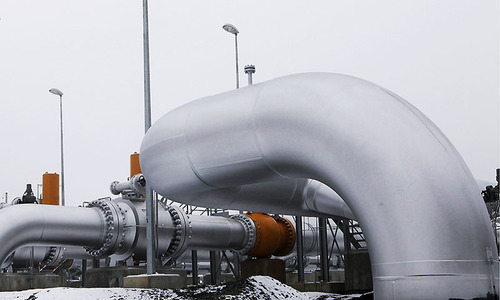ISLAMABAD: Pakistan’s oil and eatable import bill surged by 78 per cent to $12.4 billion in the July-November period compared to $6.97bn in the corresponding period last year owing to higher international prices and massive depreciation of the rupee.
The total import bill increased by 69.57pc to $33.01bn in 5MFY22 against $19.46bn in the corresponding period last year.
The share of these products in total import bill also rose to 37.56pc in 5MFY22. The steady increase in import bill of these two sectors are triggering trade deficit and pose a threat of exerting pressures on the external side of the government.
Data released by the Pakistan Bureau of Statistics showed that the import bill of oil increased by over 112.33pc to $8.38bn in 5MFY22 from $3.95bn over the corresponding months of last year. Also the unprecedented increase in prices of petroleum products for domestic users was seen during the period.
Further breakup showed that the import of petroleum products went up by 128.89pc in value and 26.35pc in quantity. Crude oil imports rose by 89.48pc in value and 1.81pc in quantity during the period under review while those of liquefied natural gas increased by 120.27pc in value. Liquefied petroleum gas imports jumped by 42.69pc in value in 5MFY22.
The food import bill rose by over 32.99pc to $4.02bn in 5MFy22 from $3.02bn over the corresponding period last year to bridge the gap in food production.
The rising food imports and the consequent trade deficit is yet another source of worry for the government. Pakistan spent over $8bn on the import of edible items in the last fiscal year.
The import bill will go up further in the coming months because the government has decided to import 0.6m tonnes of sugar and 4m tonnes of wheat to build strategic reserves.
Within the food group, the major contribution came from wheat, sugar, edible oil, spices, tea and pulses. Edible oil imports witnessed a substantial increase in both quantity and value terms. Due to rising world prices, the palm oil import bill grew by 74.34pc in value in 5MFY22 to $1.52bn from $876.019m in 5MFY21.
As a result, the domestic prices of vegetable ghee and cooking oil also went up. The import of soyabean oil dipped by 10.79pc in value and 52.34pc in quantity in 5MFY22 from a year ago.
However, the wheat imports fell by 40pc to 957,936 tonnes in 5MFY22 against 1.585 million tonnes in 5MFY21.
The import of sugar rose 21.42pc to 307,855 tonnes in 5MFY22 against 253,554 tonnes in 5MFY21. The import bill of pulses, tea, and spices also grew rapidly during the period under review.
Machinery arrivals rise
The machinery import bill increased by 42.36pc to $4.8bn in 5MFY22 against $3.37bn in the same period last year. Import of power-generating machinery went up by 27.55pc mainly due to China-Pakistan Economic Corridor-related projects.
The mobile phone imports were up by 18.32pc year-on-year to $856.72m in 5MFY22. The arrival of apparatus of mobile phones posted growth of 60.46pc year-on-year to $276.804m.
The import of the transport sector posted a growth of 125.04pc to $1.90bn in 5MFY22 against $848.646m over the same period last year. It was mainly led by massive imports of road motor vehicles (build unit, CKD/SKD).
Published in Dawn, December 18th, 2021













































